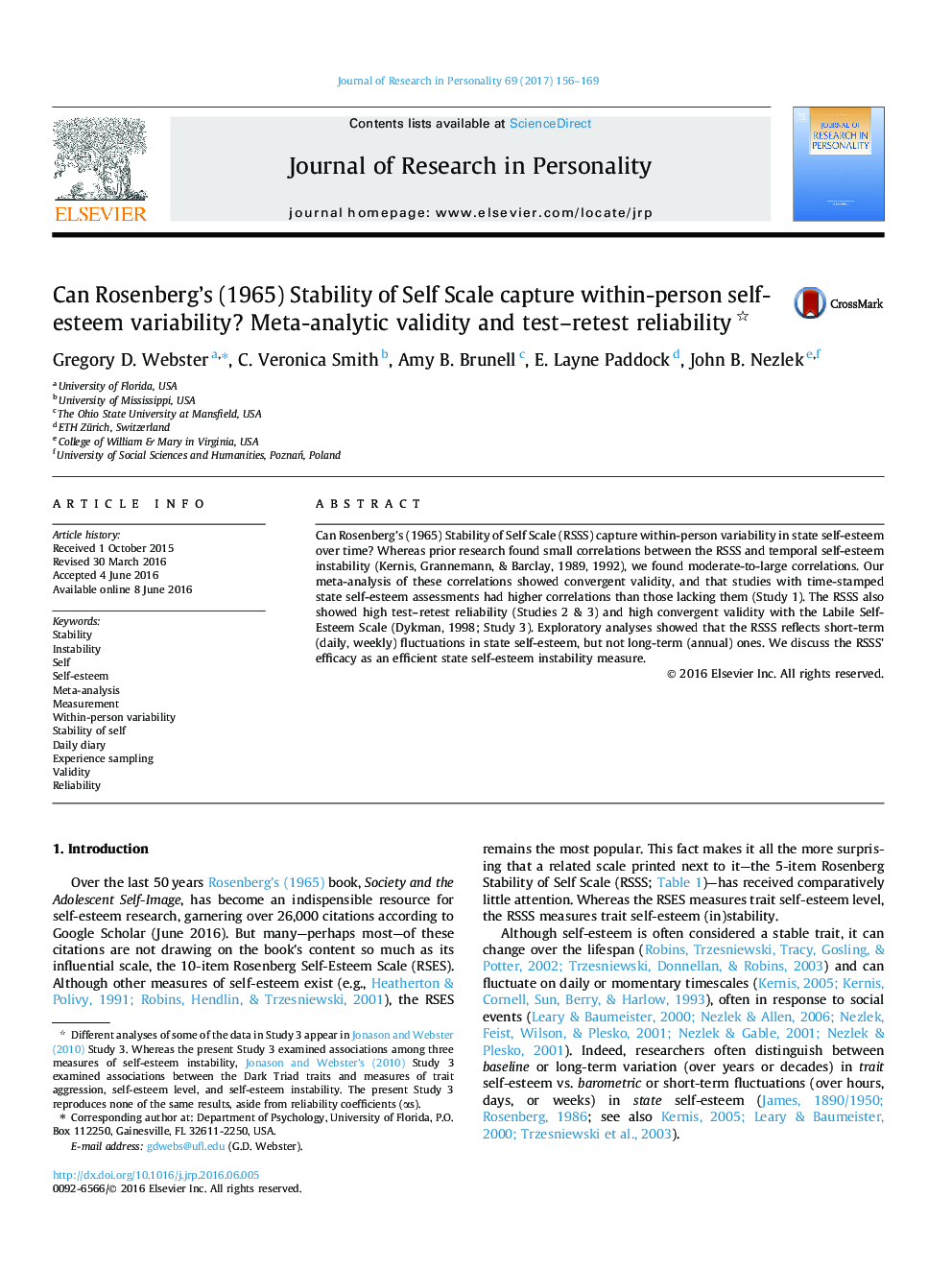| Article ID | Journal | Published Year | Pages | File Type |
|---|---|---|---|---|
| 5046242 | Journal of Research in Personality | 2017 | 14 Pages |
â¢Rosenberg's (1965) Stability of Self Scale (RSSS) had good test-retest reliability.â¢The RSSS had convergent validity with temporal self-esteem stability (SD over time).â¢Convergent validity was stronger when accounting for 3 sources of measurement error.â¢Convergent validity was weaker when controlling for state & trait self-esteem level.â¢Analyses included meta-analysis, integrated data analysis, and multilevel modeling.
Can Rosenberg's (1965) Stability of Self Scale (RSSS) capture within-person variability in state self-esteem over time? Whereas prior research found small correlations between the RSSS and temporal self-esteem instability (Kernis, Grannemann, & Barclay, 1989, 1992), we found moderate-to-large correlations. Our meta-analysis of these correlations showed convergent validity, and that studies with time-stamped state self-esteem assessments had higher correlations than those lacking them (Study 1). The RSSS also showed high test-retest reliability (Studies 2 & 3) and high convergent validity with the Labile Self-Esteem Scale (Dykman, 1998; Study 3). Exploratory analyses showed that the RSSS reflects short-term (daily, weekly) fluctuations in state self-esteem, but not long-term (annual) ones. We discuss the RSSS' efficacy as an efficient state self-esteem instability measure.
